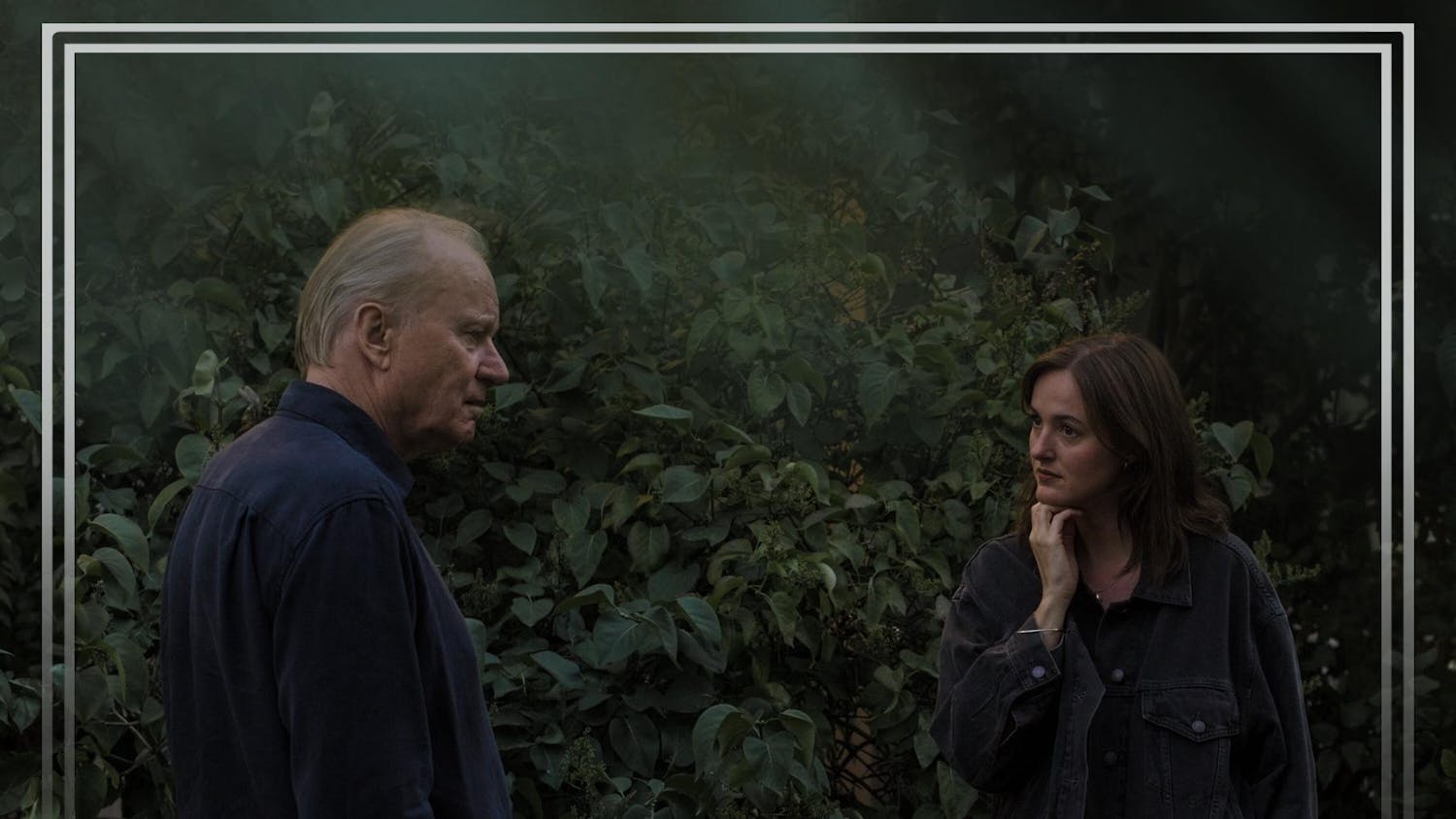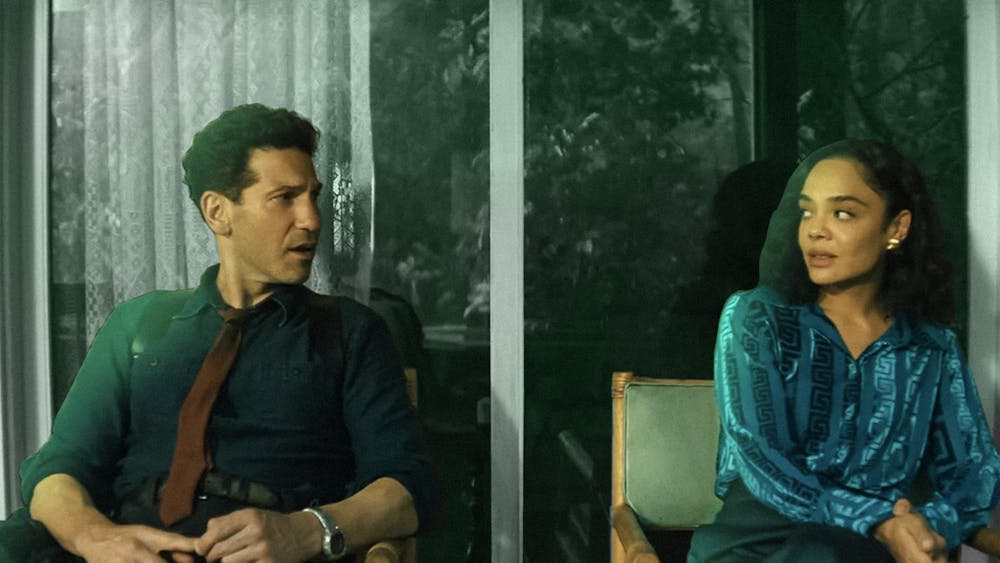
Who’s to blame when a marriage ends?
In her latest album, “star-crossed,” Kacey Musgraves takes listeners through her journey trying to answer this question for her own marriage, reflecting on the same relationship that produced the joyful record “Golden Hour” just three short years ago. Described as a “tragedy in three parts” by Musgraves herself, “star-crossed” traverses the messy depths of her marriage, from its initial infatuation to its quiet, whispered demise.
This album wasn’t just a departure from Musgraves’ previous album, which focused on the experience of falling in love with her now ex-husband, but also a departure from the classic trappings of Musgraves’ native genre of country music. For “star-crossed,” Musgraves worked with the same writers and producers from “Golden Hour,” but used different influences, featuring everything from Latin music to electronic synths in her songs. While some can see these new influences as Musgraves challenging the boundaries of what country music can sound like, others might feel that this album moves out of the genre altogether. Recently, the Grammy’s genre screening committee went as far as to exclude it from the country album categories. However, even amidst arguments about genre and influence, Musgraves still delivers the story of her marriage with the same sincerity and lyricism that catapulted her previous album to the top of the charts.
Musgraves lays out the road map for her album with the opening track “star-crossed” detailing the larger story of her marriage and subsequent divorce from country singer Ruston Kelly. Musgraves sings of the pain of realizing the marriage wasn’t working and the despair of the divorce, but also reflects on her feelings of doubt and panic after signing divorce papers, realizing she’s on her own now.
From there, Musgraves takes us back to the beginning of her marriage for the first part of this tragedy. She delves into all of her feelings surrounding her marriage and its issues, with the desperate self-doubt in “good wife” starkly contrasting against the sweet metaphors in “cherry blossom.” But by the end of this first third, even the bright spots of her marriage can’t outshine the darkness, as she says, “If this was a movie, love would be enough … But this isn’t a movie.” “If this was a movie” grieves the end of any semblance of a happy marriage, wishing for the simplicity that movie romances offer to audiences.
The second act of Musgraves’ tragedy begins with the sharply cutting, deeply hurting “justified.” Describing the time immediately after a breakup, she sings of her pain in simple yet painful lyrics, embracing her pain in with an upbeat and synthy backing track. The middle third of her album alternates between feelings of self-blame in “angel” and a resigned sense of 20/20 hindsight in “breadwinner.” One of the most relatable tracks on the entire album, “camera roll,” replays the inevitable scroll through happy pictures that happens after the end of any relationship, relating universal feelings of regret, panic and loss.
However, this middle portion is where the album begins to lose sight of itself as a narrative, with conflicting messages competing for attention with every other track. Musgraves can’t decide whether to look back on her marriage with regret that she didn’t try harder or whether it was an inevitable tragedy waiting to happen. The lack of clear delineation between the “three parts” of her tragedy paints messy boundaries throughout the middle section of the tracklist, but manages to find itself by the time the third act comes around.
The last five tracks take on a more retrospective tone with sadly motivating anthems like “what doesn’t kill me” and “keep lookin’ up.” At this point in the album, Musgraves has enough perspective to recognize the good parts of her relationship and offers a soft detour from the overarching narrative with “hookup scene,” advising couples to realize what they have with each other. The last two tracks offer Musgraves’ closing remarks on her story as she looks toward the future with hope, glancing back at her marriage as just a chapter of her life that offered her both joy and pain. Her closing track, “gracias a la vida,” is a cover of Chilean singer Violeta Parra’s iconic song, entirely sung in its original Spanish. This muffled cover is at once antique and timeless, and fades away to silence, leaving listeners with the messy emotions that make up this album.
Attempting to narrate the downfall of your marriage isn’t easy, and Musgraves manages to tell this deeply personal story without the typical anger and bitterness that comes with a divorce album. This isn’t a story of a single guilty party ruining a good relationship, but instead the story of two people who loved each other and, despite their best efforts, just couldn’t make it work. The messy overlapping themes in the album speak to the fact that healing isn’t linear and that human relationships can be painful and upsetting, while still having moments of joy and love. While “Golden Hour” gave us a shiny and wide-eyed look at marriage, “star-crossed” gives us a darker retrospective of the same story, offering up Musgraves’ banged-up heart in 15 tracks.
Artist: Kacey Musgraves
Album: “star-crossed”
Label: MCA Nashville and Interscope Records
Favorite tracks: “breadwinner,” “justified”
If you like: “folklore” by Taylor Swift
Shamrocks: 4.5 out of 5
‘star-crossed’: The darker side of ‘Golden Hour’
Makayla Hernandez | The Observer
Makayla Hernandez | The Observer









